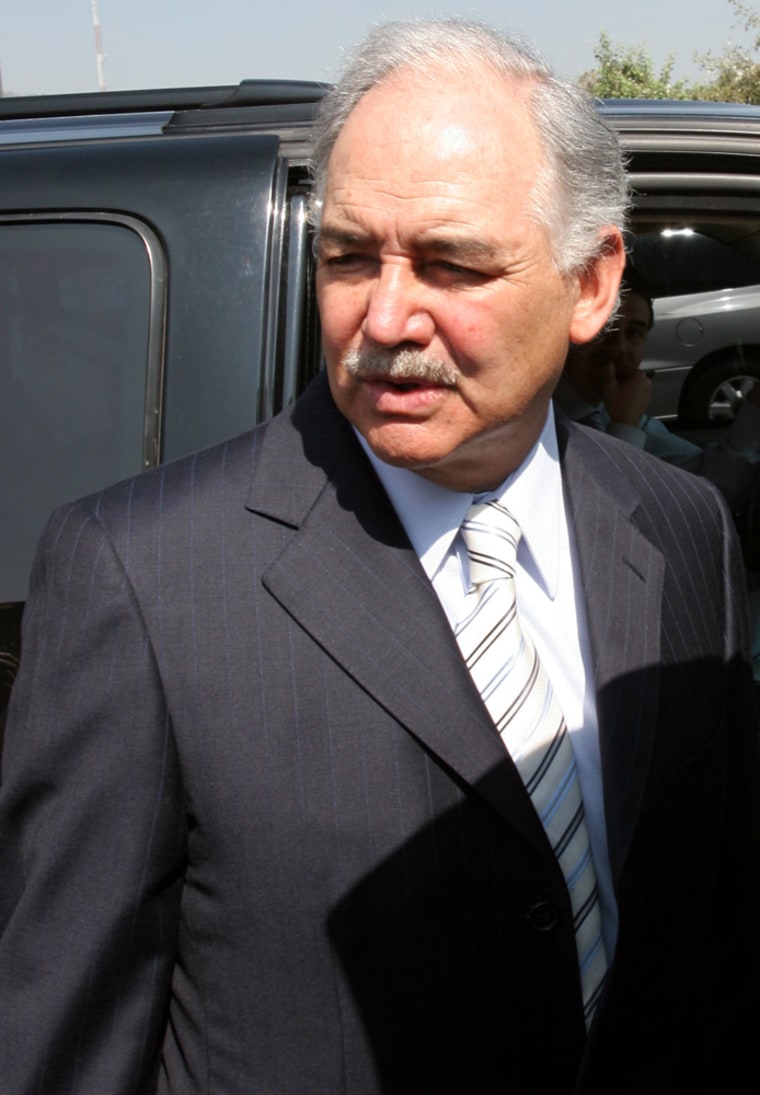The brother of former President Carlos Salinas de Gortari walked out of prison Tuesday after his murder conviction was overturned — a move that will force prosecutors to reopen the probe of a slaying that shook Mexican politics.
"I have always been innocent," Raul Salinas said as he was released from a prison west of Mexico City early Tuesday morning after lawyers posted a bond for his $3 million bail.
An appeals court last week overturned his conviction for killing his former brother-in-law, Jose Francisco Ruiz Massieu, leaving him eligible for bail on the charge he still faces: illegal enrichment.
Asked what he had learned in prison, the 63-year-old Salinas said, "I have learned humility," a quality he was not known for during the years he was known as the president's "uncomfortable brother." He recently acknowledged profiting from his brother's influence, though he has denied taking bribes.
A pall of political suspicion has hung over the case from the moment of Raul Salinas' arrest on Feb. 28, 1995. It came as recently inaugurated President Ernesto Zedillo was dramatically breaking with predecessor Carlos Salinas, who had hand-picked him as the ruling party candidate.
The arrest prompted Carlos Salinas to drop his U.S.-backed campaign for presidency of the World Trade Organization and to flee Mexico. He spent most of the next six years abroad.
With Mexico now heading again into an election season, President Vicente Fox's spokesman Ruben Aguilar on Tuesday had to repeatedly deny suggestions that Raul Salinas' freedom might have been negotiated with Carlos Salinas.
But in a televised interview, even Aguilar acknowledged suspicions that "there could have been bad intentions or a political line" in the original charges against Raul Salinas.
An investigation reopened
Aguilar said that prosecutors now will have to reopen the investigation to determine who ordered the killing of Jose Francisco Ruiz Massieu, shot to death on a busy street in Mexico City on Sept. 28, 1994.
The killing added to the bloody shocks of an election year that had already seen the Zapatista rebel uprising and the assassination of the first PRI presidential candidate, Luis Donaldo Colosio.
A former governor, Ruiz Massieu was serving as secretary-general of the ruling Institutional Revolutionary Party, or PRI.
In January 1999, Salinas was convicted and sentenced to 50 years, a term later trimmed to 27 1/2 years. But the appeals court said the case against Salinas was based largely on hearsay and witnesses who had been bribed or threatened.
In one case, the prosecution was caught paying a clairvoyant who had planted the bones of a deceased relative on Raul Salinas' ranch in a bid to incriminate him.
The gunman was caught and sentenced to 50 years in prison. The man who hired him, former congressional staffer Fernando Rodriguez Gonzalez, also was convicted.
But the man who allegedly organized the killing, Congressman Manuel Munoz Rocha, vanished the day of Ruiz Massieu's slaying, creating a gap in prosecutors' efforts to follow the chain of the conspiracy.
